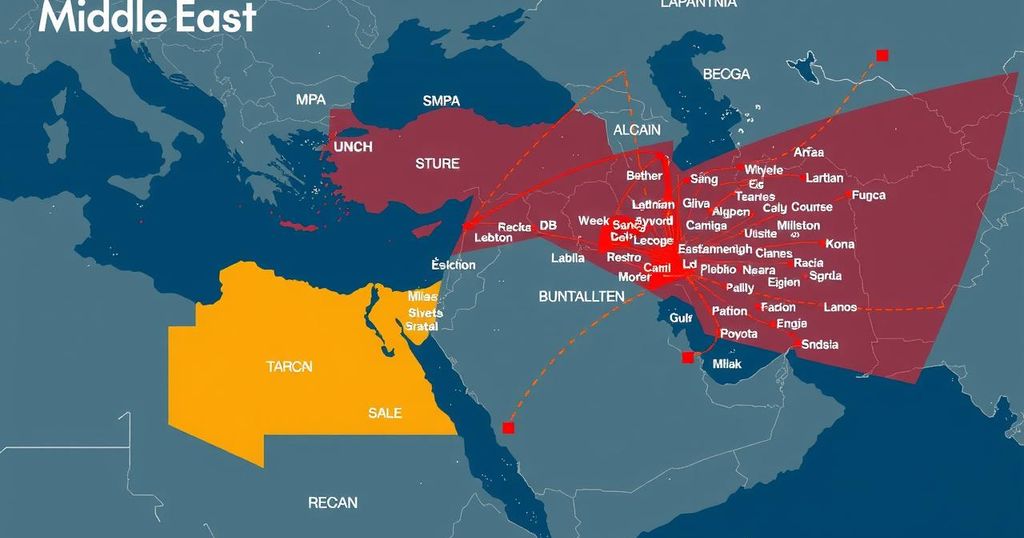Geopolitical Alliances in the Syrian Civil War: A Middle Eastern Perspective

The Middle East remains divided over the Syrian civil war, with Russia and Iran backing Assad while Turkey supports opposing forces. Gulf nations exhibited initial unity against Assad but have softened their stance. Israel and Djibouti remain neutral amidst the complex geopolitical landscape, further complicated by Lebanon’s Hezbollah support for Assad.
The geopolitical landscape of the Middle East remains deeply fragmented, especially in the context of the Syrian civil war, which has intensified since 2012. External actors have significantly influenced the conflict, most notably Russia and Iran, who align with the government of Bashar al-Assad. This intervention has included military support from Russia, which has had troops stationed in Syria since 2015 to bolster Assad’s regime. In contrast, opposition forces have found backing from neighboring countries like Turkey, enhancing the complexity of regional alliances.
The Gulf States once exhibited a united stance against Assad, as exemplified by Saudi Arabia, Bahrain, the United Arab Emirates (UAE), and Qatar, which closed their embassies in Syria and called for Assad’s removal. However, there has been a shift over time, with the UAE suggesting potential avenues for peace that may not necessitate the ousting of Assad. Oman has maintained its relations with the Syrian government, adopting a more reserved approach compared to its Gulf counterparts.
Interestingly, Yemen is the sole state in the region supporting the Assad regime directly, through the Houthi movement’s backing of the government. Conversely, Djibouti’s distance from the conflict has led to its neutral stance, a position echoed by Israel. While Lebanon officially claims neutrality, the presence of Hezbollah, which actively supports Assad, complicates this claim and has resulted in significant refugee influxes into Lebanon due to the war.
Countries such as Libya and the Palestinian territories face their own political challenges, leading to a lack of coherent positions regarding the Syrian conflict. The persistent instability affects their capabilities to engage diplomatically and define a clear stance. Newsweek’s mapping of these group dynamics highlights the diverse reactions influenced by geography and the individual political climates of regional actors.
In conclusion, the Middle East is characterized by a patchwork of alliances regarding the Syrian civil war, ranging from outright support to delicate neutrality. The ongoing conflict underscores the intricate interplay of national interests and the varying degrees of engagement or disengagement by Middle Eastern nations.
The Syrian civil war, erupting in 2012, has drawn significant international attention due to the involvement of multiple states, each supporting different factions either in favor of or in opposition to the Assad government. Major players like Russia and Iran align with Assad to enhance their influence, while various countries, particularly in the Gulf region, have shown unified opposition initially but have begun adapting their positions over time. This has resulted in a complicated web of alliances that reflects not only foreign policy objectives but also geographical realities and regional instability.
The ongoing Syrian civil war continues to shape the geopolitical dynamics of the Middle East, revealing a landscape defined by fragmented alliances and varying degrees of engagement among neighboring states. While some nations closely support the Assad regime, others have shifted to a more conciliatory approach, reflecting the evolving political landscape. The impact of regional conflicts resonates beyond borders, influencing diplomatic relations and internal stability across the Middle East.
Original Source: www.newsweek.com








